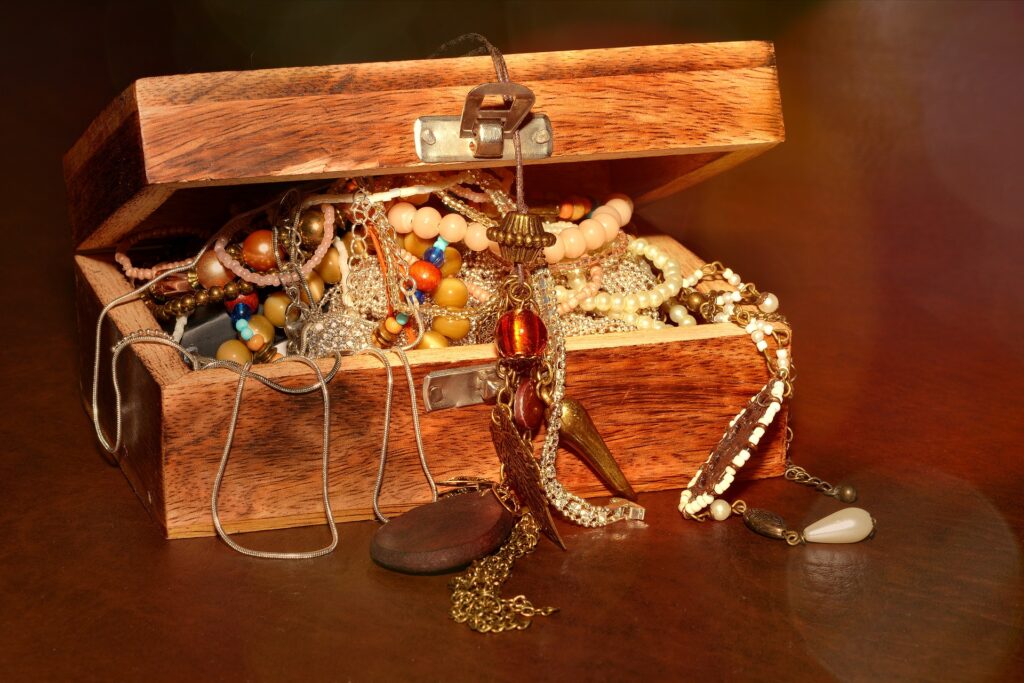
Where Your Treasure Is (Matthew 6:19-21)
So many people will do anything to get a little ahead in life. Perhaps that’s why Jesus spoke about money more than any other subject. Sixteen of the thirty-eight parables are concerned with how to handle money and possessions. In the Gospels, one out of every 10 verses deals directly with the subject of money. The Bible offers 500 verses on prayer, less than 500 verses on faith, but more than 2,000 verses on money and possessions.
Because the Bible speaks so much about money, we need to speak about money and possessions. Tonight, we want to think about where our treasure is.
Where Not to Lay Up Treasure, v 19
We are not to lay up for ourselves treasures on earth, because:
- Moth destroys. Clothing was very important in the ancient world. Elisha’s servant ran after Naaman to ask for two changes of clothing (2 Ki 5:22). One of the things for which Achan lusted in Jericho was a “beautiful Babylonian garment” (Josh 7:21). Clothing in the ancient world never went out of style, so it was something which could easily be hoarded.
- Rust destroys. “Rust” is really not that good of a word here; the Greek is actually a generic term for anything that destroys. There were several ways one’s goods could be destroyed in the ancient world. Because banks as we know them did not exist in the ancient world, individuals would dig holes in the ground in which they placed their valuables. These valuables would obviously rust and tarnish, and they would no longer be of any value. Individuals would also horde grain, and mice and rats would come in and consume the harvest.
- Thieves break in and steal. In the East, houses were often made of baked clay, and if someone had something a thief wanted, the thief would just dig through the walls and get whatever he wanted. The relative “security” we know in our homes today did not exist in Jesus’ day.
Jesus’ point here is that the treasures we accumulate here on earth are temporary. Our possessions today are just as temporary as they were in Jesus’ day–fire can destroy our home, illness can cost us our life’s savings, a nose-dive in the stock market can wipe out our 401k.
Jesus is not at all condemning wealth; wealth, in and of itself, is not wrong. 1 Timothy 6:10. We are to provide for our families (1 Tim 5:8). We are to work and make provisions for the future (Prov 6:6-8). God has given us all things richly to enjoy (1 Tim 6:17).
Jesus is telling us not to long after earthly things, because they are temporary. It’s difficult not to lust after earthly treasures–They are seen and can be handled, they are sought by most people, and other people influence us, they are to varying degrees necessary for life, and they can be possessed right now.
What about you–are you laying up for yourself treasures on earth?
Where to Lay Up Treasure, v 20
We are to lay up for ourselves treasures in heaven. “Treasures in heaven” refers to whatever is of good and eternal significance that comes out of what is done on earth. Throughout the Sermon on the Mount, Jesus talks about our having a reward in heaven, but in this Sermon he never specifies what that reward might be. In Revelation, Jesus tells us what our reward–our treasure—is (Rev 2:7; 2:11; 3:5; 3:21). The idea here is that if we live righteously, God will bless us as his children; he will reward us. One man properly said, “The great use of a life is to spend it for something that outlasts it.” Are you using your life for something that will outlast it?
Jesus said we should lay these treasures up in heaven, because there moth, rust, and thieves do not take away our treasures. These heavenly treasures endure; they do not decay with the passing of time. 1 Peter 1:4. 2 Corinthians 4:18. Are your treasures in heaven? Are they fading away?
Won’t it be wonderful to have a treasure that shall never pass away?
Where Our Hearts Are, v 21
Wherever our hearts are, there are treasure will be. Jesus’ point is that the things we most highly value occupy “the heart,” the seat of our intellect. The things of heaven, not the things of this earth, need to occupy the heart; these are the things we need to value.
Where is your heart? Is it set on the things of this world–getting ahead at work regardless of the consequences, selfishly accumulating wealth, seeking prestige and honor? Is our heart set on the things of heaven–attempting to please God in all we do, looking forward to the reward God shall grant us in heaven?
Conclusion
Where is your heart? Do you need to come and give your heart to Jesus this night?
This sermon was originally preached by Dr. Justin Imel, Sr., at the Alum Creek church of Christ in Alum Creek, West Virginia.





